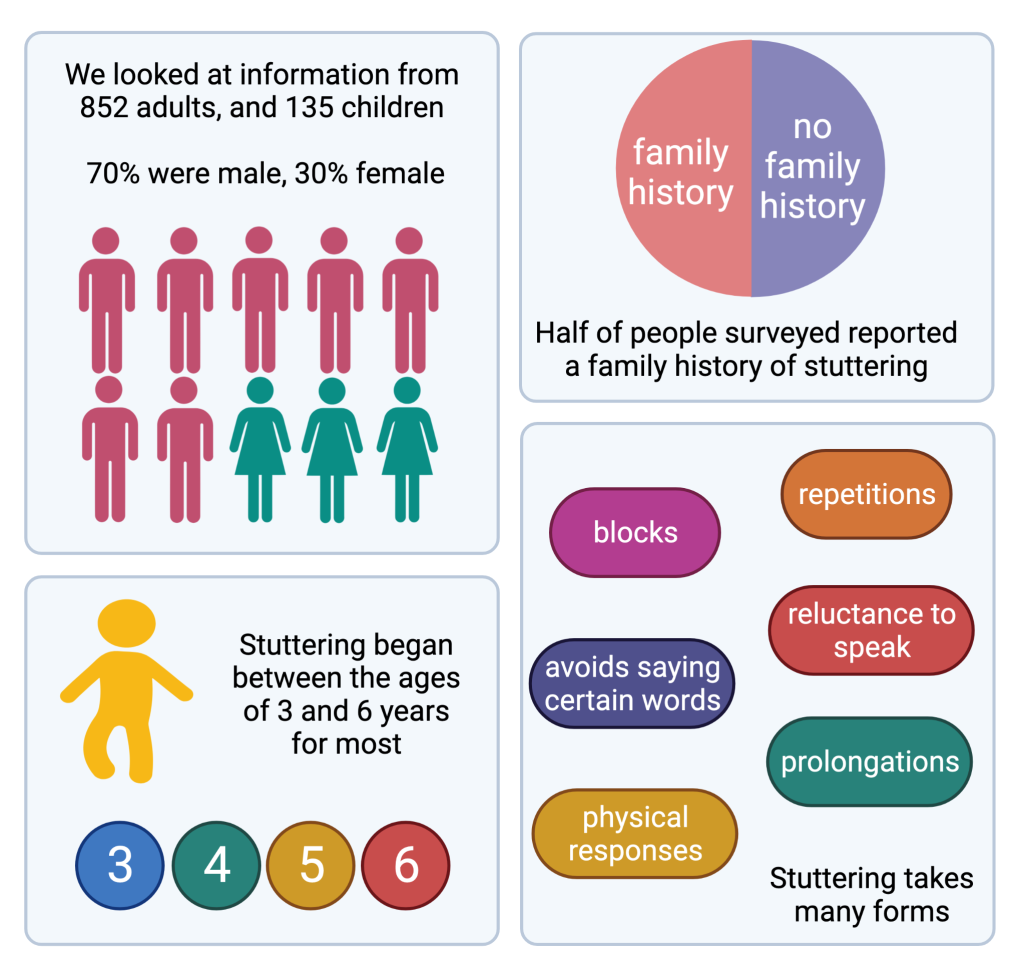Latest Research
Click below for summaries on the latest research into stuttering and other research from the 'Genetics of Stuttering' team.
New paper from the team: insights from the Australian arm of our study!
By Vicki Jackson | | Blog, New Research, Research from the team, Stuttering Research
Insights into the everyday experiences of people who stutter We are very excited to share with you our recent paper: “Self-reported impact of developmental stuttering across the lifespan” in Developmental Medicine & Child Neurology. Through the Genetics of Stuttering Study, we are collecting a wealth of information from people who stutter (PWS), about the nature…
Read More Stuttering persistence and recovery between 4 and 7 years
By Jess Boyce | | New Research, Research from the team, Stuttering Research
This study was nested within the Early Language in Victoria Study (ELVS), a large longitudinal community cohort based in Melbourne, Australia. The results showed that that 65% of children who stammered at 4 years had recovered by the age of 7. The recovery rate was similar for boys (60.7%) and girls (57.1%). Who was…
Read More Are children who stutter likely to have different behavioural, emotional and social development?
By Jess Boyce | | New Research, Stuttering Research
Children who stutter may begin to show impaired behavioural, emotional and social development at early as age 3, and these difficulties are well established in older children who stutter” – McAllister, 2016 This study examined the externalising and internalising behaviours of children who stammer, or stutter, aged 3, 5 and 11 years. The study utilised…
Read More Are children who stutter more anxious than those who don’t?
By Jess Boyce | | New Research, Research from the team, Stuttering Research
“We found no evidence that … 11 year old children who stutter were more anxious than those who had recovered from stuttering and nonstuttering controls” – Smith et al. 2017 This study examined anxiety and emotional and behavioural functioning in 11 year old children with persistent stammering, or stuttering. Results showed that the 20 individuals…
Read More 




